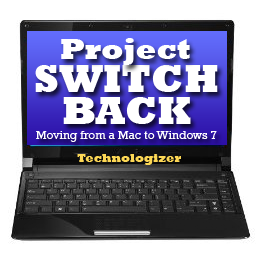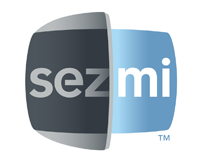 Bobble Rep, the iPhone application that lets you find and contact your senators and members of congress and which depicts them as bobblehead dolls, is no longer an app non grata. After initially rejecting the program, Apple has done an about face and pushed it through to the App Store. (On my iPhone, at least, it’s profoundly hobbled by error messages I’ve never seen before–but the program is only 99 cents, so I can live with the disappointment.)
Bobble Rep, the iPhone application that lets you find and contact your senators and members of congress and which depicts them as bobblehead dolls, is no longer an app non grata. After initially rejecting the program, Apple has done an about face and pushed it through to the App Store. (On my iPhone, at least, it’s profoundly hobbled by error messages I’ve never seen before–but the program is only 99 cents, so I can live with the disappointment.)
The tale of Bobble Rep–app is submitted, app is rejected, controversy ensues, app is accepted–is a remarkably common one on the App Store. Yes, I know that the fast majority of programs submitted are quietly accepted without incident. But of the ones that are initially nixed, a high percentage seem to make it into the store eventually. (Offhand, the only apps I wish I could get that Apple has denied me are Google Voice and the 3G-capable version of SlingPlayer; if there’s a bad guy in the latter instance, it’s AT&T, whose terms of service specifically prohibit apps that reroute TV over its network.)
Apple, in other words, usually manages to do the right thing–it’s just that it sometimes does it after doing the wrong thing and getting slapped around in the blogosphere. Wouldn’t it be more efficient for everyone concerned–and less embarrassing for Apple and the iPhone platform–if it figured out it should really approve these apps before rejecting them and sending so many people into a tizzy? I’m a mere bystander, and I can usually tell which rejected apps Apple is going to reverse itself on. Can’t someone within Apple figure out the same thing, and just fast-forward to the correct outcome?


 It’s been a couple of weeks since I reported on
It’s been a couple of weeks since I reported on 
 The New York Times is reporting on a new survey that says that 48 percent of Americans would be willing to pay something for online news. The Times’ story begins with a tsk-tsking tone: We Yanks are less likely to say we’d pony up than people in other western countries. But a lover of ambitious news reporting–and, I hasten to add, someone with a selfish desire to see the media business continue to provide paying work–I found the figure sort of encouraging. In a world in which everybody except Wall Street Journal readers get to be happy online freeloaders, I would have guessed that considerably less than half of respondents would have had their head around the concept of paying for news.
The New York Times is reporting on a new survey that says that 48 percent of Americans would be willing to pay something for online news. The Times’ story begins with a tsk-tsking tone: We Yanks are less likely to say we’d pony up than people in other western countries. But a lover of ambitious news reporting–and, I hasten to add, someone with a selfish desire to see the media business continue to provide paying work–I found the figure sort of encouraging. In a world in which everybody except Wall Street Journal readers get to be happy online freeloaders, I would have guessed that considerably less than half of respondents would have had their head around the concept of paying for news. We’re still very, very early in the Windows 7 era: The operating system only went on sale as an upgrade and on new PCs on October 22nd. But it’s not too soon to check in with people who pounced on Windows 7 at the first opportunity–after all, their experiences will help everyone else decide whether the upgrade is worth the effort and money. And if you’re one such early adopter, we’ve got some questions about your experiences.
We’re still very, very early in the Windows 7 era: The operating system only went on sale as an upgrade and on new PCs on October 22nd. But it’s not too soon to check in with people who pounced on Windows 7 at the first opportunity–after all, their experiences will help everyone else decide whether the upgrade is worth the effort and money. And if you’re one such early adopter, we’ve got some questions about your experiences. I’ve written periodically of my flirtation with
I’ve written periodically of my flirtation with  Bobble Rep, the iPhone application that lets you find and contact your senators and members of congress and which depicts them as bobblehead dolls, is no longer an app non grata. After
Bobble Rep, the iPhone application that lets you find and contact your senators and members of congress and which depicts them as bobblehead dolls, is no longer an app non grata. After  [NOTE: As a commenter noted, I mangled this news: The December 18th ship date is just for new orders. Corrected…]
[NOTE: As a commenter noted, I mangled this news: The December 18th ship date is just for new orders. Corrected…] TechCrunch’s Michael Arrington
TechCrunch’s Michael Arrington